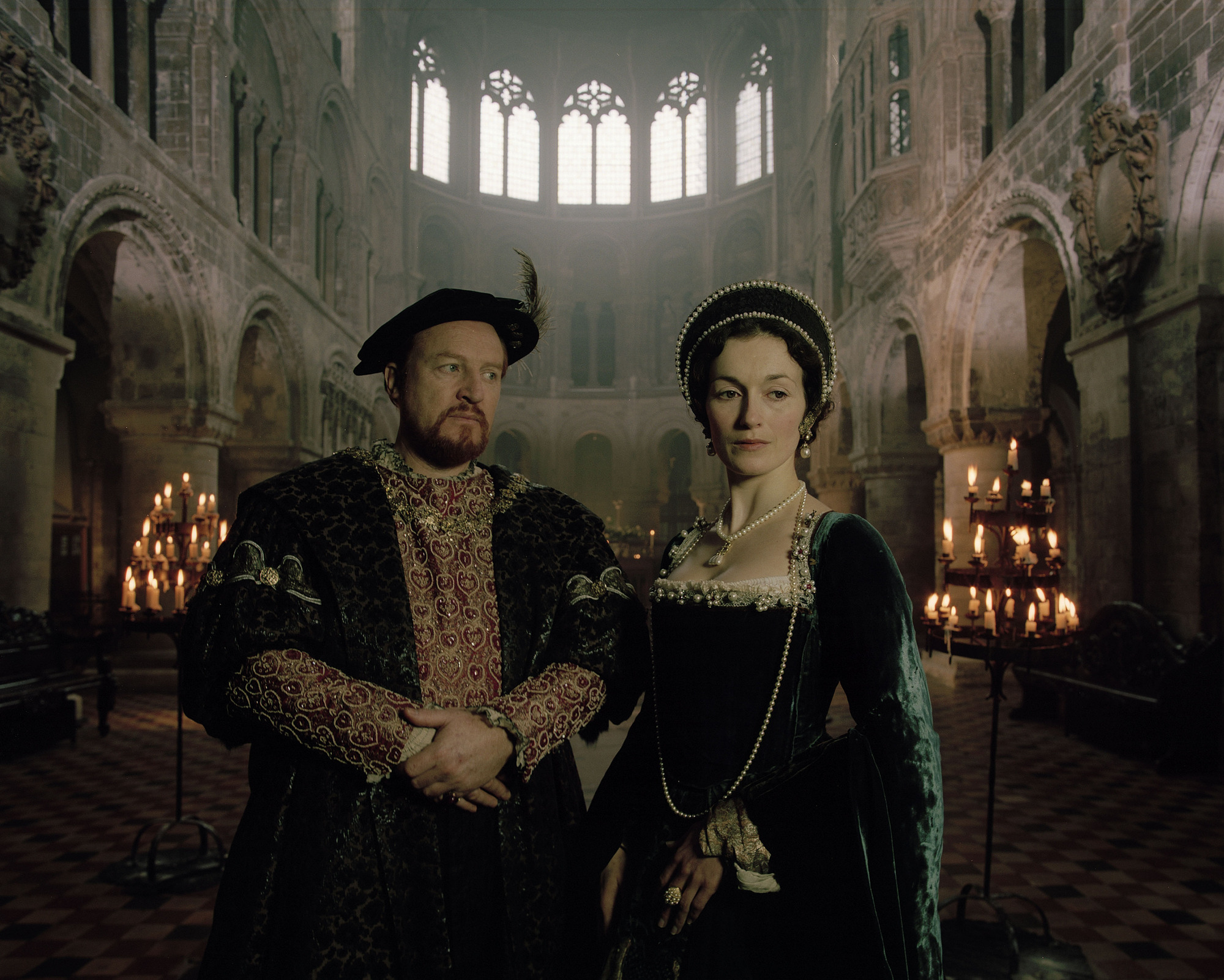The Tudors have invaded television. Everywhere you look, it’s Henry VIII this, Henry VII that, Anne Boleyn this, Anne of Cleves that. On BBC2 is the continuing drama series The Tudors, whose Henry VIII looks like the lead singer in a boy band who’s stumbled on to the wrong film set. At any moment, you expect him to announce the execution of Anne Boleyn with those jabbing-the-air hand gestures that boy-band members use to semaphore emotion.
Lushly soap operatic, The Tudors depicts the royal court not so much as a place of high political intrigue but as a hearth for dynastic family troubles where improbably good-looking people have lots of sex. Racy, pacy, lacy, the show takes a Desperate Housewives’ view of Henry’s household — not entirely off the mark, if you think about it.
There’s also been A Tudor Feast, which served exactly what it promised; The Time Traveller’s Guide to Elizabethan England; Henry VII: Winter King; Henry VIII’s Enforcer (that’s Thomas Cromwell); and The Most Dangerous Man in Tudor England (William Tyndale in a crowded category). It’s all part of BBC2’s Tudor Court Season, with even comedies such as Blackadder II apparently dovetailing along.
The documentary that was most arresting (in every sense of the word) was The Last Days of Anne Boleyn. The leading lights of Tudorology — David Starkey, Hilary Mantel, Philippa Gregory & co. — all tumbled out from behind the arras to say their pieces. ‘People like to think of Anne Boleyn as sexually out of control, ravenously ambitious — a she-wolf,’ said Gregory. ‘In the end, it’s a story about a man and a woman,’ offered Mantel.
Everyone sifted the evidence of Boleyn’s alleged crimes against the Crown; everyone said there was not enough evidence to support the others’ arguments. Author Alison Weir said Cromwell plotted Boleyn’s downfall; Starkey said Henry was the mastermind; Mantel said we do no justice to Boleyn by regarding her as a victim.
Professor Greg Walker said Anne and George Boleyn probably didn’t commit incest — ‘No matter how desperate, you don’t have sex with your brother.’ Gregory said they might have. Walker said there was something suspect about all the suspicions. Historian George Bernard said Anne probably committed the hijinks with her courtiers that she was accused of. (Good for her. Better to be beheaded for something than for nothing.)
Starkey was so excited, he almost burst out of his clothes. To emphasise his points, he rolled his Rs with rrrelish: ‘It was a bearrr pit, prrrimeval, prrrimordial drrrama, rrred in tooth and claw and horrror and passion.’
You just know Starkey would make a great Henry VIII! Not the actual Henry, but the Henry of those reenactments that the BBC likes to create for its historical documentaries. He’d cut a fine figure, swaggering about in a doublet and hose, a feather in his cap. The wives are neither here nor there. (Though special mention should go to the Anne re-enactor, who played the French-bred, Protestant-leaning queen with chic puritanical allure.)
As it was, where clothes were concerned, it’s the women commentators who came to the fore. Sensing that a Tudor narrative is as much about atmosphere as about info, they dressed for the part. Weir wore an ornate locket. Mantel swathed herself in a regal blue shawl. Historian Suzannah Lipscomb Boleyn-ised her grey jumper with a long string of pearls.
Speaking of mood-making, over on BBC3 (Monday) is a kitschy Hollywood-centred four-parter presented by former Knight Rider David Hasselhoff. Everything hangs on him hamming up his persona as the cheesy, camp ex-Baywatch supremo. It’s the Hoff! And we’re off.
Hasselhoff identifies the best action, horror, dance and sci-fi movies, with each episode entitled accordingly: The Hoff’s Best Action Film Ever!, etc. He does so from an ‘office’ whose décor is cray-zee — huge bronze paperweights, framed photos of himself, an ornamental desk that looks as if it once belonged to a Hong Kong triad —to show the series doesn’t take itself seriously.
The Hoff introduces various talking heads, who discuss the elements that should go into, say, a good action flick. None of them shares his charisma, though they do offer amusing observations — a car chase should always ram into a fruit stall, for instance, scattering melons everywhere.
The programme is outmoded, with the kind of ‘Ten Most…’ format so popular on the E! channel in the Noughties, and computer graphics that look as if they were designed either ten years ago by an ageing geek, or today by a tween on an iPad. You wouldn’t go out of your way to see it, but it’s quite good fun if you do.







Comments